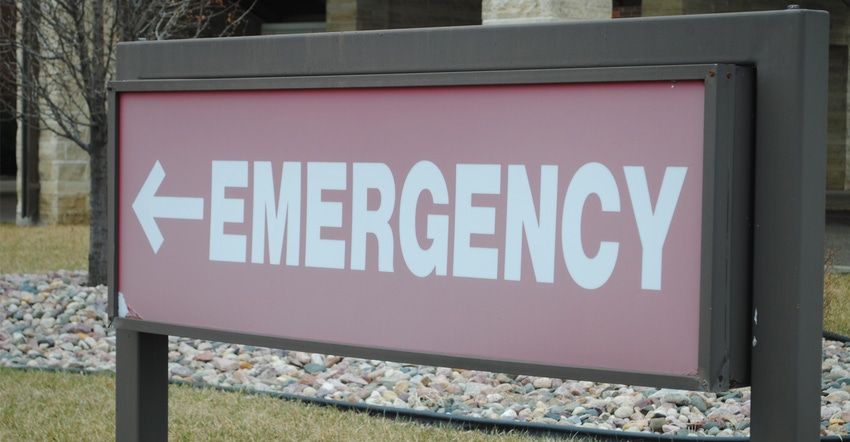
Hundreds of community blood drives were canceled across the country early this spring because of safety concerns related to the COVID-19 outbreak. That is putting pressure on local blood banks to provide the blood needed by hospitals, including those in rural areas.
“To ensure adequate social distancing and the safety of our blood donors and team members, we’ve canceled bloodmobile blood drives for the time being,” says Claire DeRoin, community relations coordinator for LifeServe Blood Center, which is based in Sioux City, Iowa.
LifeServe is a nonprofit, community-based blood center that is the sole provider of blood and blood products to 120 hospitals in Iowa, Nebraska and South Dakota.
Related: Complete coronavirus coverage
“Inside setup blood drives are still going on where we can ensure enough space,” DeRoin says. “We have a lot of excellent blood drive chairpeople who are graciously working with our rapidly evolving requirements. Their flexibility and willingness to adapt by rescheduling or finding a new home for their blood drive is truly heartwarming.”
DeRoin notes that school closings and businesses sending workers home caused many cancellations of blood drives across the region, resulting in the loss of thousands of units of blood needed for their blood center.
“It’s not all doom and gloom, though,” she says. “Thanks to an overwhelming outpouring of support, our blood supply remains stable. Our donor centers and community blood drives have been busier than usual. We are currently requiring appointments, and our schedules have been booked weeks in advance.”
She says that hospitals are transfusing less blood this spring because elective surgeries are on hold. “We are confident that traumas, cancer treatments, newborn deliveries and other medical situations that require transfusions will have blood available,” DeRoin says.
If you want to donate blood, you can always find a blood drive that is still taking place. “Even if there isn’t a blood drive in your area until early summer, please still book an appointment,” DeRoin says. “We’ve been working hard to spread the love and keep a steady amount of donations coming in over the next few months.”
For those able to make an appointment to donate blood, procedures may have changed since the last time you donated. LifeServe and other blood centers across the country have implemented new safety precautions to protect the health of those donating blood, as well as blood center workers.
“We’re asking that before donors even come to the blood drive, they start helping us prescreen,” DeRoin says. “Donors should take their temperature before reporting for their appointment. If their temperature is 99.5 degrees F or higher, they’ll need to cancel their appointment and reschedule for another time.”
Walk-ins are no longer allowed for LifeServe donors. Those who report to a blood drive but do not have an appointment will not be able to donate blood that day.
“We’re working hard to make sure there is a safe amount of people at our blood drives and to avoid unnecessary congregating and waiting,” DeRoin says.
It also is helpful if donors complete their pre-donation questionnaire online ahead of time, leaving one less step in the in-person process.
“As a health care-type organization, cleaning and disinfection has always been top of mind for us,” DeRoin says. “We’ve doubled and maybe even tripled our efforts, so be prepared to see a lot of hand sanitizer, disinfecting wipes and sprays and other cleaning going on during your donation.
“Our team members are encouraged to wear handmade masks. We aren’t on the front line treating COVID-19 patients, so we’re conserving medical-grade masks for those nurses and doctors who need them. Only healthy team members and blood donors can report to blood drives, so we’re confident in those precautions.”
DeRoin also points out that they enforce social distancing at blood drives. That’s why they have canceled bloodmobile blood drives and are only holding inside setup drives in larger spaces where they can ensure plenty of space to distance chairs and screening stations.
LifeServe has used unique strategies to promote continued blood donations and new community blood drives.
“High school students who host a blood drive and recruit at least 40 registered donors are eligible to win a $500 scholarship from LifeServe,” DeRoin says. “We think this is an excellent scholarship opportunity because not only will successful students be earning cash for school, but the effort will be making a huge impact in the community as well.”
To donate blood through LifeServe, call 800-287-4903. The American Red Cross also is taking blood donations around the country. Find a drive or blood center near you by visiting redcrossblood.org or by calling 800-733-2767.
Read more about:
Covid 19About the Author(s)
You May Also Like






